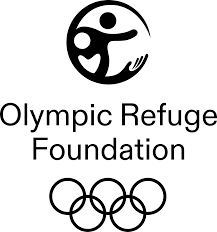Olympic Refuge Foundation
Senior Programmes Manager
About Olympic Refuge Foundation
Further to the success of the Refugee Olympic Team, in September 2017 the IOC launched the Olympic Refuge Foundation as the next chapter in its long-term commitment to supporting the protection, development and thriving of displaced young people through sport, 365 days a year across the globe.
The Foundation believes in a society where everyone belongs, through sport. Its goal is to shape a movement which ensures that young people affected by displacement thrive through sport. The Foundation aims to provide access to safe sport for one million young people affected by displacement by 2024.
By the end of 2021, more than 85,000 young people were accessing safe sport across 8 countries, 849 coaches had been upskilled and 69 safe sport spaces improved. Evidence, capacity and advocacy work continue through convening three key networks; the Sport for Refugees Coalition bringing together more than 80 organisations to improve access to sport for refugees, the Community of Practice that facilitates exchange and capacity between and among implementing organisations and the Think Tank that focuses on the nexus of mental health and psychosocial support, sport and displacement contexts.
What Olympic Refuge Foundation is doing
Working in cooperation with the Olympic Movement, the United Nations, international organisations, the private sector, non-governmental organisations and other foundations, the Foundation has supported/supports 12 programmes in ten countries: Colombia, Democratic Republic of Congo, Jordan, Kenya, Mexico, Rwanda, Turkey, Uganda, Bangladesh and France.
The ORF also manages the Refugee Athlete Support programme and the Refugee Olympic Team(s) competing at the Olympic Games, offering support to refugee athletes to compete at high level competitions.
Based on the learning and insight from this work the ORF advocates for safe sport to be widely adopted by practitioners and policy makers to support young displaced people; fostering inclusion, cohesion and physical and mental wellbeing. For example, the Global Compact on Refugees includes article 44 recognising the important role of sports and, specifically the ORF.
The ORF has also mobilised more than 80 organisations to join the sport for refugee coalition together with UNHCR advocating for access to safe sport; convenes a Think Tank of more than 20 experts in mental health and psychosocial support, sport, humanitarian, academia, NGOs, Corporate sector to focus on the role of sport to support mental health in displacement settings; and facilitates a community of practice for 20+ practitioners working in sport for protection across the globe to share and learn from one another.


